
Vivaldi 3.2 for Android and Chromebook unveils tracker improvements
One week after launching Vivaldi 3.2 for desktop, Vivaldi Technologies has released Vivaldi 3.2 for Android and Chromebooks.
The new Android build adds several improvements to its built-in tracker and ad-blocking tools, plus makes even more use of the bottom of the user interface. It follows on from last week’s desktop release, which improved the browser’s pop-out video feature with the addition of a mute button.

Firefox 78 and Firefox 78 ESR unveil new privacy protection features
Mozilla has released Firefox 78.0, the latest in a long line of major updates to the veteran browser. Available for Windows, macOS and Linux, the new release is joined by Firefox ESR 78.0, the first major update of the Extended Support Release browser since Firefox 68 last year.
The release sees the Privacy Protections screen renamed to Protections Dashboard. It also gains two new features: the ability to track the number of resolved breaches directly from the dashboard itself, plus an option to check to see if any saved passwords have been exposed in a data breach. Type about:protections to access the dashboard quickly.

Opera 69 expands its social media support with new Twitter sidebar tool
In the crowded web browser market, finding unique selling points can be hard. Opera 69 launches with one major headline feature: a new sidebar providing users with easy access to their Twitter accounts.
The new feature joins other recent additions designed to make Opera stand out -- from ad and tracker blockers to free browser VPN -- and follows on from recently added support for Instagram, which Opera claims allowed it to "reach a record number of users in March 2020".

Vivaldi 3.1 unveils new Notes Manager tool, customizable menus
Vivaldi Technologies has unveiled Vivaldi 3.1 for Windows, Mac and Linux. The release comes 48 hours after the first major update for Vivaldi for Android.
The desktop build unveils a major upgrade to its existing Notes feature in the form of a full-blown Notes Manager tool. The tool is now accessible via its own full-screen tab in the main browser window (click the link in the Start page or type vivaldi://notes/ into the browser’s address bar).
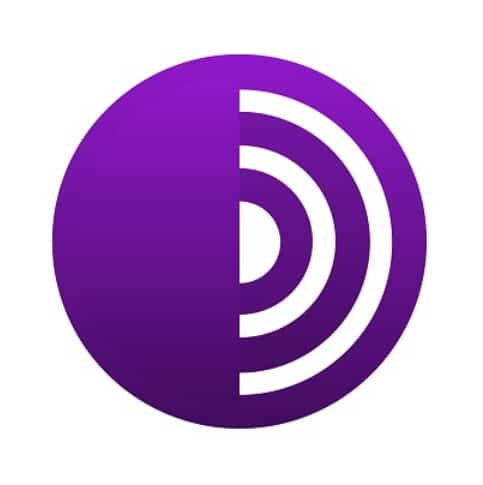
Tor Browser 9.5 arrives with the option to automatically switch to more secure Onion versions of sites
Increasing numbers of internet users are becoming aware of the privacy and security implications of being online, and it is for this reason that secure browsers such as Tor are growing in popularity. Now, with the release of Tor Browser 9.5, the browser features an option that can automatically switch to the secure .onion version of a site if one is available.
In short this means that sites are able to actively promote the fact that they have a secure .onion site available. Publishers now can advertise their onion service to Tor users by adding an HTTP header, so if someone visits the regular version of a website, a notification will appear informing them of the more secure option.

How to use DNS over HTTPS in Chrome
With more and more people expressing concern about privacy and security online, companies have had to start to take notice and deliver tools to help. This is particularly noticeable in the browser market, and with the latest version of Chrome, Google has doubled down on security.
Having tested DNS over HTTPS (DoH) for some time, Google has added enhanced support for DNS lookups over an encrypted HTTPS connection to Chrome 83. In the Windows, macOS and Linux versions of the browser, Google's implementation of the security feature is called Secure DNS; here's how to use it.

Firefox 76 expands Lockwise password manager capabilities
Mozilla has released Firefox 76.0 for Windows, macOS and Linux, the latest in its long line of major updates to the venerable open source browser.
The chief focus in this new release is the further development of Mozilla’s Lockwise password manager. Users gain several enhancements including alerts of website breaches with prompts to update all online accounts that share the same password.

Vivaldi 3.0 for desktop unveils new tracker and ad protections, Vivaldi for Android officially launches
It’s a day of double celebration for fans of the Vivaldi web browser. Not only does Vivaldi 3.0 get released for Windows, Mac and Linux, but the company -- led by Opera co-founder Jon S von Tetzchner -- unveils the first stable release of Vivaldi for Android.
Both releases come with a brand new feature in the guise of built-in ad and tracker blockers. The desktop release also unveils a new clock for its status bar, plus improvements to its pop-out video feature.
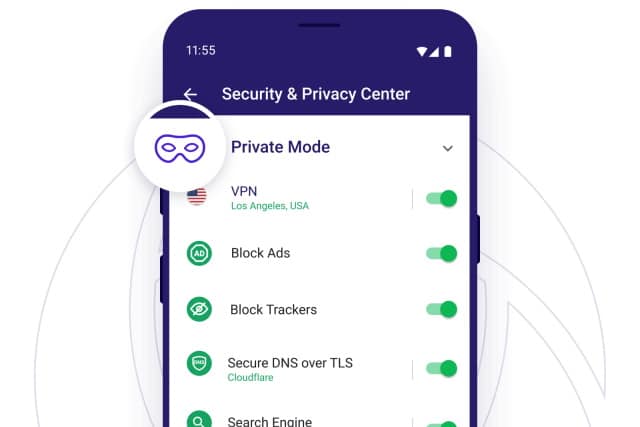
Avast Secure Browser lands on Android complete with a built-in VPN
Avast has launched an Android version of its security- and privacy-focused web browser. Avast Secure Browser features various DNS options and a built-in VPN to calm the fears of those concerned about their privacy.
This is not all the browser has to offer. There's also anti-tracking technology and complete data encryption to take care of the security side of things as well.
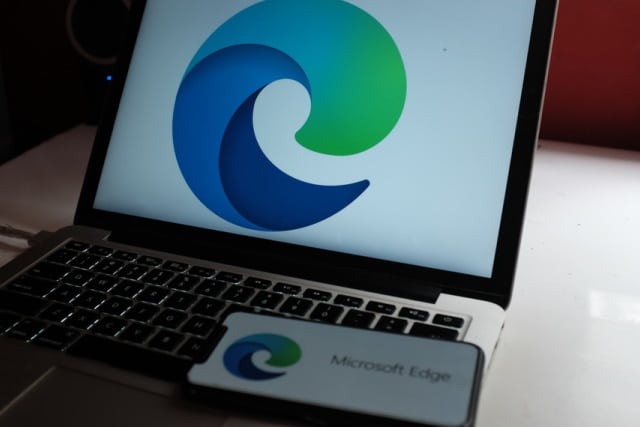
Microsoft Edge is now the second most popular web browser
Google Chrome is still the leader of the pack, but there's a different rival tailing it. New figures show that Microsoft Edge is now the second most used browser in the world, pushing Firefox down into third place.
The silver medal now belongs to the Chromium-based version of Edge on the desktop which has seen a great increase in popularity, even though it has only been available for a matter of months.
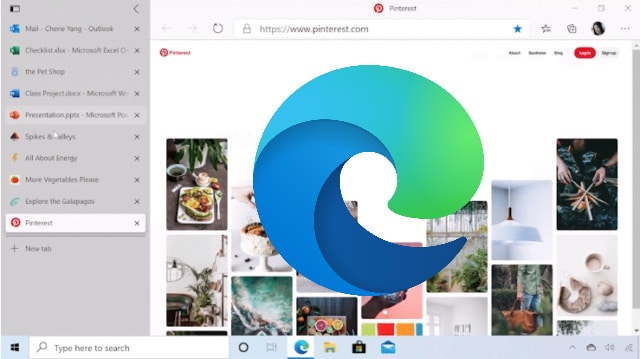
Microsoft is bringing vertical tabs to Edge so you can make better use of your widescreen monitor
Websites are, on the whole, vertical experiences, whereas laptop screens and desktop monitors are, in most cases, horizontal ones. Despite the relatively limited amount of vertical space available, browsers tend to further reduce this by placing tabs, menus, toolbars and more at the top of the screen. But Microsoft is ready to try something different.
The company has announced a number of new features that are coming to the new Chromium-based version of Microsoft Edge. Among these features are vertical tabs which make more efficient use of screen space.

Google gives Chrome users the option to always show full URLs in the address bar
Google's decision to hide the start of website URLs from Chrome's omnibox was a little controversial. While replacing https://www. and http://www. with icons indicating whether the site was secure or not, many people preferred being about to see that the HTTPS protocol is being used through the presence of those five letters.
If you're one of these people, there's some good news: Google seems to have been listening. Having previously implemented an experimental option to show full URLs on a one-off basis, preview builds of Chrome for macOS, Windows and Linux have a new "Always show full URLs" option.
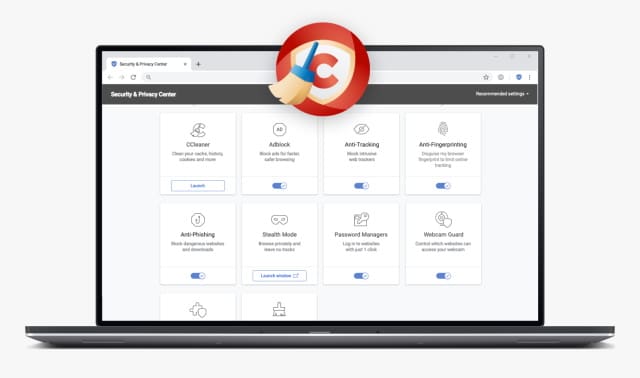
Piriform releases privacy-, security- and speed-focused CCleaner Browser 80.0
Avast-owned Piriform is best known for its CCleaner software, a tool designed to help you clear out the crap from your computer. Now, after a preview period, the company has launched the Chromium-based CCleaner Browser 80.0.
Promising "no ads, no tracking, no junk[and] built-in security" CCleaner Browser is billed as a fast browser that gives users easy-to-use privacy tools that help to reduce digital footprints.

Firefox 74 tightens add-on security, simplifies importing data from Microsoft Edge
Mozilla has released Firefox 74.0 for desktop, along with Firefox for Android 68.6.0 and Firefox ESR 68.6.0.
Firefox 74.0 ships with several new features, none of which are jaw-dropping, but all of which serve to further improve the browser’s privacy, security and usability. In addition, the Facebook Container add-on now gives users control over which sites are blocked from reporting back to Facebook.
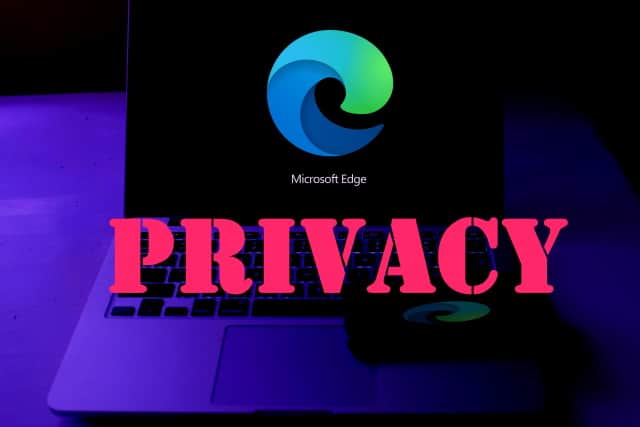
Microsoft Edge has more privacy-invading telemetry than other browsers
Microsoft may be making great claims about the speed and security of Edge, but a recent study found that the browser is one of the least private. Douglas J Leith from the School of Computer Science & Statistics at Trinity College Dublin, Ireland, tested six web browsers to determine how often they phoned home, and what data they were sharing.
He pitted Google Chrome, Mozilla Firefox, Apple Safari, Brave Browser, Microsoft Edge and Yandex Browser against each other, and the results were rather damning of Edge. Among the findings was the disturbing fact that all URLs typed into Edge are shared with multiple Microsoft sites, as are unique hardware identifiers, opening up the possibility of history tracking.
